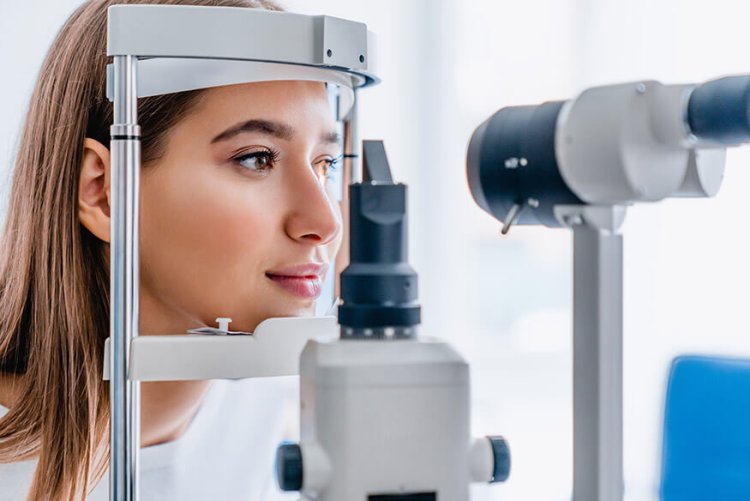How to care for your eyes?
Here are some tips on how to care for your eyes like Regular Eye Exams, Protect Your Eyes from UV Rays etc. Read More

Caring for your eyes is essential for maintaining good eye health and preventing vision problems. Here are some tips on how to care for your eyes:
How to care for your eyes?
Regular Eye Exams: Schedule regular eye exams with an optometrist or ophthalmologist, even if you don't currently have vision problems. These professionals can detect eye diseases and vision changes early on.
Protect Your Eyes from UV Rays: Wear sunglasses that block 100% of UVA and UVB rays when you're outdoors. Prolonged exposure to UV rays can increase the risk of cataracts and macular degeneration.
Follow the 20-20-20 Rule: If you spend a lot of time staring at a computer screen or other digital devices, take a 20-second break to look at something 20 feet away every 20 minutes. This helps reduce eye strain.
Adjust Your Workspace: Ensure your computer screen is at eye level and that you have proper lighting to reduce glare. Adjust the font size and screen brightness for comfortable reading.
Stay Hydrated: Drink enough water to prevent dry eyes. Dry eyes can cause discomfort and blurred vision.
Eat a Healthy Diet: A diet rich in fruits and vegetables, particularly those high in vitamins A, C, and E, can promote eye health. Omega-3 fatty acids found in fish like salmon can also benefit your eyes.
Manage Chronic Conditions: If you have diabetes or high blood pressure, keep them under control, as these conditions can affect your eye health.
Quit Smoking: Smoking increases the risk of eye diseases like cataracts and macular degeneration. Quitting can improve eye health.
Protect Your Eyes in Hazardous Environments: If you work in a hazardous environment or participate in activities like welding or woodworking, wear appropriate protective eyewear to prevent eye injuries.
Get Enough Sleep: Adequate sleep is essential for overall health, including eye health. Lack of sleep can lead to eye strain and other vision problems.
Limit Screen Time: Reduce the amount of time you spend on digital devices, especially before bedtime, to prevent digital eye strain and sleep disruption.
Avoid Rubbing Your Eyes: Rubbing your eyes can irritate them and potentially introduce dirt and germs. Use a clean tissue or eye drops if your eyes are itchy or irritated.
Practice Good Contact Lens Hygiene: If you wear contact lenses, follow your eye doctor's recommendations for proper cleaning and disinfection to prevent eye infections.
Also read: Health Benefits of Eating Samosa
Stay Informed: Be aware of your family's eye health history, as many eye conditions have a genetic component. Regular eye exams are particularly important if you have a family history of eye diseases.
Stay Active: Regular physical activity can help maintain good blood circulation, which is essential for eye health.
Remember that everyone's eye health is unique, and if you experience any changes in your vision, discomfort, or other eye-related issues, consult an eye care professional promptly. Early detection and treatment can often prevent more serious problems.















